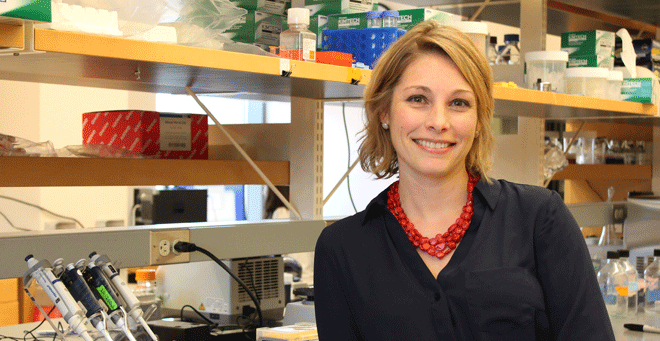 |
|
|
Dorothy P. Schafer, PhD |
Dorothy P. Schafer, PhD, assistant professor of neurobiology, has been awarded a Charles H. Hood Foundation grant to continue her research into improving child health. The grant will allow the Schafer lab to identify new ways that resident immune cells of the brain called microglia regulate the development of brain circuits necessary for processing sensory information.
“I’m thrilled to receive this award, particularly from a foundation devoted to funding child health research—my passion,” said Dr. Schafer.
The two-year, $150,000 Child Health Research Award is intended to support newly independent faculty, provide the opportunity to demonstrate creativity and assist in the transition to other sources of research funding.
“Long-term, we will apply our findings to many neurologic disorders, but particularly focused on autism spectrum disorders where brain wiring and abnormally reactive microglia are hallmark features, but it is unclear whether and how the two are mechanistically linked. Our science aims to make great strides to address this important biological question,” said Schafer.
The Charles H. Hood Foundation was incorporated in 1942 to improve the health and quality of life for children through grant support of New England-based pediatric researchers. Its grants are administered by Health Resources in Action, whose Community Health and Medical Foundation divisions develop programs that advance public health and medical research.
UMass Medical School has benefited from a long history of support from the Hood Foundation, with numerous faculty receiving Child Research Awards, as well as postdoctoral fellowships and other funding from the foundation.
Related stories on UMassMedNow:
Trudy Morrison, PhD, and Read Pukkila-Worley, MD, awarded Hood Foundation grants
Schafer Lab works to unlock mystery of microglia function
UMMS researcher finds microglia contribute to end stages of Rett Syndrome